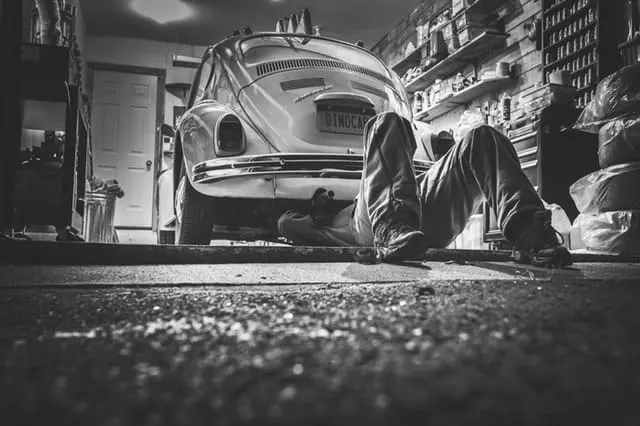
Routine maintenance and inspection of automobiles and motorcycles can prevent or detect issues before they become disastrous. However, inspecting your brakes and checking your oil level are simple tasks. The gearbox is one of the most challenging parts of a car to inspect. Aside from the transmission fluid, which isn’t a ‘lifetime fluid,’ the clutch is another component that requires periodic maintenance.
What Is the Purpose of a Clutch?
Over a relatively narrow range of engine rpm, gasoline and diesel engines produce the most power (rotations per minute). So the transmission has a variety of gear ratios to match the rpm your tires need to turn to achieve the speed you desire. A clutch disengages the motor during gear shifts for the brief period it takes to reach the RPMs. The flywheel is connected to the transmission by a high-friction pressure plate usually pressed tightly against the flywheel to transmit the engine’s power. Clutch pressure plate distance from the engine allows the engine to run independently of gear ratio and tire pressures when engaged.
How frequently should you have your clutch serviced?
As a result, there is no established time or mileage point at which you should use Clutch Services. All this will all depend on your driving style, the age of your vehicle, and other factors.
You may assume there’s nothing wrong with your clutch, especially if you don’t travel too far from town. On the other hand, if you do a lot of starts and stops, this might wear out your clutch faster than it would for drivers who spend a more significant percentage of their time on the highway.
When you first become aware of a change in how the vehicle drives, it is time to consider replacing the clutch. The only way to tell is to pay great attention to your car’s driving and listen closely to the sounds it emits while it is moving.
In general, the lifespan of a car clutch should range anywhere from 30,000 to 100,000 miles; however, the lifespan of a clutch can vary significantly based on a variety of driving factors, allowing it to survive for either less or more miles.
Maintenance of the Clutch
Most modern cars use a hydraulic clutch system similar to brakes and power steering in older and some economic models.
Maintaining clutches is essential to avoid significant issues and extend the life of your vehicle’s engine. It’s critical to have your transmission serviced by a certified mechanic in transmissions, even if it’s not included in your regular maintenance.
Clutch adjustments take about an hour and include a check of the hydraulic fluid level. Your car’s maintenance schedule specifies how often this should be done. Replacement of clutch hydraulic fluid at longer scheduled service intervals is recommended, as it is for other automotive fluids.
Signs of a Failing Clutch
- If you’re experiencing clutch issues, don’t confuse them with transmission issues. They are independent elements that require extra care.
- Failure to engage fully in gears can cause the clutch to seem chattery or create noise when you push it in or out. It might also make it difficult to push the clutch pedal, giving the impression that it is slipping. If the master and slave cylinders (which work in tandem) malfunction, the clutch will disengage completely.
- Remember that the throw-out bearing is connected to the clutch, so be careful. Whenever you replace a clutch, ensure that the throw-out bearing and pilot bearing are up to date because they function in tandem. When the clutch pedal is depressed, screeching may indicate a problem with either bearing.
- In most cases, the flywheel is resurfaced or replaced with a clutch repair. A dual-mass flywheel needs different maintenance than a standard flywheel.
Conclusion
Vehicles should be serviced every six months. Check for sounds or difficulties between services. Clutch Services will examine your car’s safety features. Use high-quality brake and clutch components. Check your brake or clutch if it squeaks or chirps. Maintaining your car’s safety features is vital. Contact clutch services for clutch maintenance information.
- Sagittarius Man & Gemini Woman Love and Sex Compatibility - January 31, 2024
- Taurus Ascendant Rising Personality Traits in Men (Guide) - January 31, 2024
- How to Seduce and Attract a Sagittarius Man (Seduction Tips) - January 31, 2024
